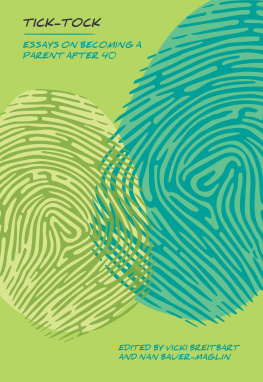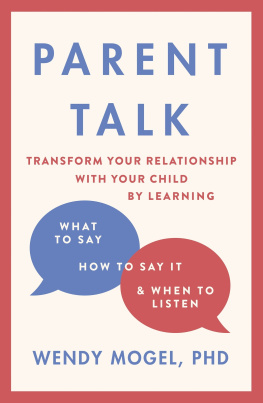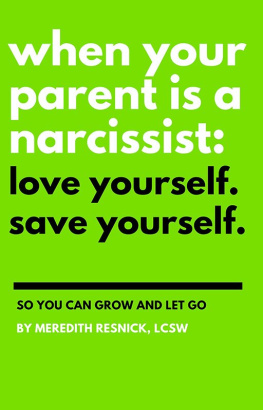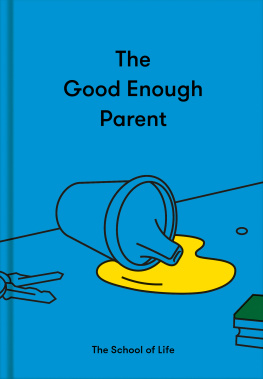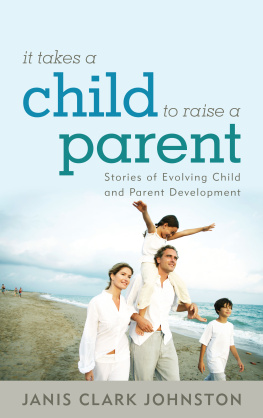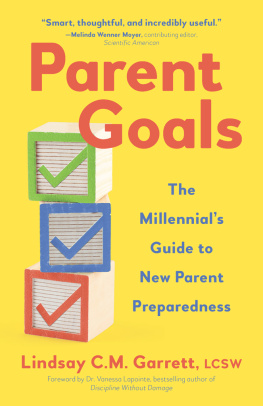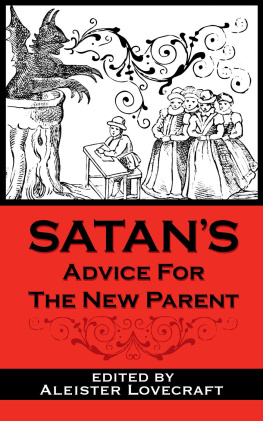Contents
Page List
Guide
ADVANCE PRAISE FOR TICK TOCK
Tick Tock is a document, a community, a manual, a help line, a chorus of voices expressing the gamut of complicated emotions that accompany a person of a certain age contemplating the leap into parenthood. I wish this important book existed when I was at that crossroads, and am grateful for it today.
MICHELLE TEA, author of Against Memoir
Tick Tock reads like a wide-ranging chat with friends who ask Whats your story? These are human, lived tales that describe life-changing and interconnected issuespolitical, social, and personal. What a gift.
JUDY NORSIGIAN and JANE PINCUS, co-founders of Our Bodies Ourselves
Tick Tock challenges readers to rethink what parenting means in this time in America from a wide variety of vantage points and through voices that are, in all their great diversity, eloquent, sharp, and deeply engaging. Brilliantly framed and beautifully written.
ROSALIND PETCHESKY, PhD, Distinguished Professor Emerita of Political Science, Hunter College & the Graduate Center, City University of New York
As an over-40 mother myself, I appreciate how this groundbreaking collection marks momentous changes in gender roles, child-rearing patterns, and family composition.
JOYCE ANTLER, PhD, Professor Emerita of Womens, Gender and Sexuality Studies at Brandeis University and author of You Never Call! You Never Write! A History of the Jewish Mother
Honest, personal, and often downright funny, these brave parents provide insight, solidarity, and hope for any over 40 who are ready to love a childand laugh and cry and wonder upon the universe every day for the rest of their lives. May it always be so.
JESS P. SHATKIN, MD, MPH, professor of Child & Adolescent Psychiatry and Pediatrics, NYU School of Medicine
Tick Tock is an exquisite, understanding, and inclusive examination of the unique challenges and joys faced by older parents. An unforgettable bookundeniably important and a pleasure to read.
BEVERLY GOLOGORSKY, author of Can You See the Wind?
TICK TOCK

ESSAYS ON BECOMING A PARENT AFTER 40
EDITED BY VICKI BREITBART AND NAN BAUER-MAGLIN

Published in 2021 by Dottir Press
33 Fifth Avenue
New York, NY 10003
Dottirpress.com
Copyright 2021 by Vicki Breitbart and Nan Bauer-Maglin
All rights reserved.
No part of this book may be reproduced, used, or stored in any transformation retrieval system or transmitted in any form or by any means, electronic, mechanical, photocopying, recording, or otherwise, without prior written permission from Dottir Press, except in the case of brief quotations embodied in critical articles and reviews.
FIRST EDITION
First printing: September 2021
Production by Drew Stevens
Cover illustration by Ashley Seil Smith
The poems by Elizabeth Acevedo are excerpted with permission from HarperCollins Publishers. Text copyright 2018 by Elizabeth Acevedo.
Library of Congress Control Number: 2021938820
ISBN 978-1948340-458 (pbk)
ISBN 978-1948340-496 (ebook)
Manufactured in the US by McNaughton-Gunn.
Contents
SALMA ABDELNOUR GILMAN
LAURA DAVIS
LINDA WRIGHT MOORE
MARTINE GUAY
SARAH DOUGHER
ELLINE LIPKIN
LINDA CORMAN
JULIA HENDERSON
PHYLLIS COX
SARAH WERTHAN BUTTENWIESER
JIM SHULTZ
JUDITH UGELOW BLAK
BARBARA HEREL
JULIE BUCKNER ARMSTRONG
VICKI BREITBART
PAMELA PITMAN BROWN
LAURA BROADWELL
ROBERT BENCE
PAIGE AVERETT
ERIK MALEWSKI
JEAN Y. LEUNG
ADAM BERLIN
ELIZABETH NEWMAN
CATHERINE ARNST
KATHERINE C. RAND
DANIEL E. HOOD
ELIZABETH ACEVEDO
OLIVER ARDILL-YOUNG
SARA ELINOFF ACKER
ALIA R. TYNER-MULLINGS
SUSAN ARDILL
ELIZABETH GREGORY
Introduction
I n April of 2018, Senator Tammy Duckworth brought her ten-day-old daughter onto the floor of the Senate. This was historic, both because she was the first sitting senator to bring her infant to Congress and because Duckworth was fifty years old at the time.
Becoming a parent after forty is a growing phenomenon. While the general fertility rate in the US is at a record low, according to the Centers for Disease Control and Prevention (CDC), the number of births for women over the age of forty has increased every year since 1985. Adoption by older people is becoming more common, tooactress and activist Mariska Hargitay adopted a child when she was forty-seven and Viola Davis adopted when she was forty-six.
And its not just celebrities. In her article about older-parent adoption, Ann Brenoff reports that over half (54 percent) of children adopted from the U.S. foster care system have parents over the age of 50 and 16 percent have parents over the age of 60. She quotes Adam Perlman, the executive director of the Evan B. Donaldson Adoption Institute, in saying that adoption by older parents is a trend thats clearly happening.
Regardless of the numbers, becoming a parent at this advanced age is not treated as normal in our culture. Gray hair or other physical signs of age mark and marginalize older parents in school or other parent-child community settings. Older parents report that they are often asked invasive and presumptuous personal questions about how their family was created. While theres a long history of grandparents successfully playing a primary parental role, it hasnt seemed to change the stigma about becoming a parent once you enter or are past the fourth decade of your life.
Tick Tock asks the question: How old is too old to become a parent? This book is for anyone approaching or over the age of forty who is considering becoming pregnant, trying to become pregnant, thinking about adoption, is a partner of any of these people, or has already gone through any of these experiences. It includes poems and a narrative about being a child of older parents, as well as stories by people, ranging in age from thirty-eight to fifty-eight, who became parents after a birth (with or without reproductive technology), by being in a relationship with someone who is already a parent, or through adoption. These authors are racially diverse, and they come from different backgrounds and cultures. They are men, women, LGBTQ, straight. Many have encountered questions, comments, and judgments from doctors, friends, family, and strangers about their age as they try to become parents. They have felt stigmatized or chastised because they hadnt had children at an earlier age; they have often felt that something is wrong with them.
Tick Tock seeks to counter these negative attitudes while acknowledging some of the challenges for those who become parents as they approach or are over forty. As the stories in Tick Tock reveal, becoming parents later in life may mean facing issues of infertility, smaller families, less involvement of their own parents, financial burdens, and additional health issues as they age. It also brings great fulfillment and joy.

